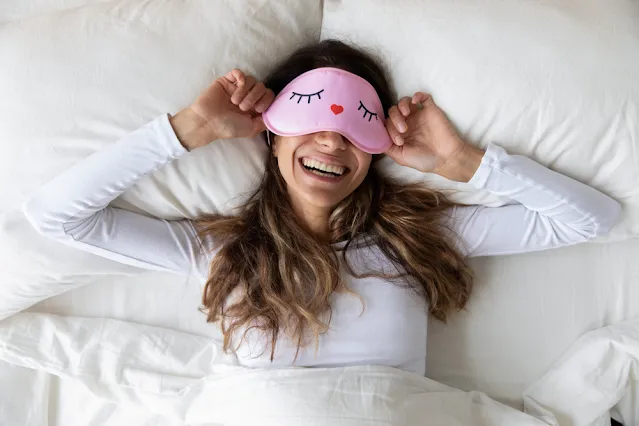How Does Sleep Affect Mental Health?
How Does Sleep Affect Mental Health?
Poor sleep can increase your risk of mental health issues by up to 60%, according to a study by the National Institute of Health. This alarming statistic highlights how deeply intertwined sleep and mental health are. A good night’s sleep is not just restorative for the body; it is critical for emotional and psychological stability. In this article, we’ll explore how sleep impacts mental health, what happens when sleep is inadequate, and practical steps to improve your sleep for better well-being.
The Science Behind Sleep and Mental Health
Why Sleep Matters
Sleep is essential for the brain to recharge, repair, and regulate emotions. During sleep, your brain processes memories, balances hormones, and clears out toxins that accumulate throughout the day. Without enough sleep, these processes are disrupted, leading to cognitive and emotional challenges.
- Key Processes During Sleep:
- Memory Consolidation: Sleep strengthens neural pathways, ensuring better learning and recall.
- Hormonal Regulation: Hormones like cortisol and melatonin are balanced, helping manage stress.
- Emotional Processing: REM sleep is vital for dealing with emotional experiences, reducing stress responses.
For an in-depth explanation of how the sleep cycle affects mental health, visit this guide on sleep stages.
| Age Group | Recommended Sleep (Hours) |
|---|---|
| Newborns (0-3 months) | 14-17 hours |
| Infants (4-11 months) | 12-15 hours |
| Toddlers (1-2 years) | 11-14 hours |
| Preschoolers (3-5 years) | 10-13 hours |
| School-age children (6-13 years) | 9-11 hours |
| Teens (14-17 years) | 8-10 hours |
| Young Adults (18-25 years) | 7-9 hours |
| Adults (26-64 years) | 7-9 hours |
| Older Adults (65+ years) | 7-8 hours |
The Detrimental Effects of Poor Sleep on Mental Health
Anxiety and Depression
Inadequate sleep heightens activity in the brain’s amygdala, increasing fear and anxiety responses, while impairing the prefrontal cortex, which is responsible for rational decision-making.
- Statistics: Studies show that insomnia doubles the risk of developing depression or anxiety disorders. This connection becomes a vicious cycle, as these mental health conditions further disrupt sleep.
- Proven Insight: The Sleep Foundation reports that treating sleep issues often alleviates symptoms of depression and anxiety.
Learn how to break the cycle of poor sleep and anxiety in this actionable article.
Stress Amplification
Stress hormones like cortisol spike when you don’t get enough sleep, leading to prolonged feelings of overwhelm and irritability. This can result in chronic stress, which further affects mental clarity and emotional health.
Emotional Instability
Sleep deprivation weakens emotional regulation, making it harder to manage everyday challenges. Studies from The Journal of Neuroscience reveal that individuals with poor sleep are significantly more reactive to negative events.
For strategies on managing emotions with better sleep, read this helpful guide.
Sleep Disorders and Their Impact on Mental Health
Insomnia and Anxiety
Insomnia is both a cause and consequence of anxiety. Racing thoughts and an overactive mind make it hard to fall asleep, while lack of sleep worsens anxiety symptoms.
- Therapy Tip: Cognitive Behavioral Therapy for Insomnia (CBT-I) is highly effective for breaking this cycle.
- Lifestyle Fix: Practice mindfulness and avoid stimulants like caffeine before bed.
Depression and Sleep Disorders
Depression often manifests in disrupted sleep patterns, including hypersomnia (excessive sleeping) or insomnia. Addressing sleep can significantly improve depressive symptoms.
For resources on managing depression-related sleep issues, visit NIMH’s sleep and depression resource page.
PTSD and Nightmares
Trauma-related disorders like PTSD commonly lead to fragmented sleep and recurring nightmares, further complicating recovery. Therapy that addresses both trauma and sleep, such as Eye Movement Desensitization and Reprocessing (EMDR), can be transformative.
The Positive Impact of Quality Sleep
Enhanced Emotional Resilience
Good sleep stabilizes emotions, reducing the intensity of negative reactions and enhancing positive outlooks. It also boosts your ability to cope with stress and setbacks.
Improved Cognitive Function
Well-rested individuals perform better in problem-solving, decision-making, and learning tasks. This clarity fosters a sense of control and confidence, crucial for mental health.
Lowered Stress Hormones
Restful sleep naturally reduces cortisol levels, helping your body recover from daily stressors and promoting a sense of calm.
Actionable Steps to Improve Sleep for Mental Health
Create a Sleep-Friendly Environment
- Keep your bedroom cool, quiet, and dark.
- Invest in comfortable bedding and supportive pillows.
Establish a Consistent Sleep Routine
- Go to bed and wake up at the same time daily, even on weekends.
- Limit naps to 20 minutes and avoid late-night activities that disrupt your schedule.
Avoid Sleep Disruptors
- Limit caffeine, alcohol, and heavy meals close to bedtime.
- Disconnect from screens an hour before sleep; blue light suppresses melatonin production.
Try Relaxation Techniques
- Practice meditation, deep breathing, or progressive muscle relaxation to ease into sleep.
- Explore yoga or stretching exercises designed to calm the mind.
For guided sleep relaxation practices, explore this resource on sleep meditation.
Seek Professional Support
If sleep problems persist, consult a sleep specialist. They may recommend sleep studies or therapies tailored to your needs.
Learn when to seek help for chronic sleep issues in this comprehensive guide.
Conclusion
Sleep is more than just rest; it’s a cornerstone of mental health. Whether you’re seeking better emotional stability, reduced anxiety, or enhanced cognitive function, prioritizing quality sleep is essential. Start by implementing the tips shared in this article and explore professional support if necessary.
Remember, a good night’s sleep is an investment in your mental well-being. Share this article with others to spread awareness of how sleep affects mental health and inspire them to take control of their sleep habits.



.webp)

